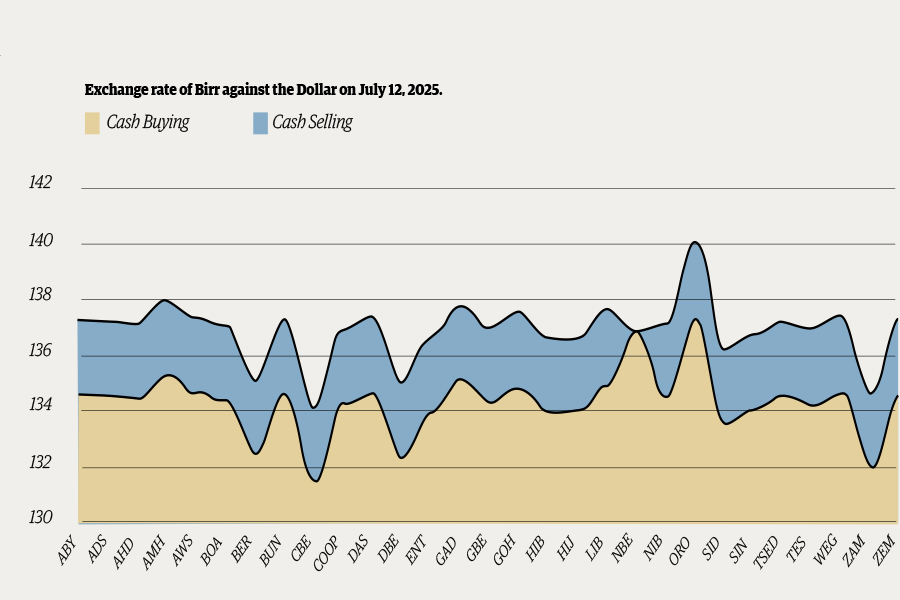
Fortune News | Feb 05,2022
Ethiopia's ambition to host the 2029 Africa Cup of Nations (AFCON) is seen as a bold bet that contrasts with the struggling state of its domestic football league and inadequate infrastructure. The excitement about the bid is perceptible, but the reality is grim. Clubs are wrestling with financial constraints, and fans are frustrated by the lack of viable stadiums in the capital. The Addis Abeba Stadium, the central venue built in the 1940s, has been under renovation since 2020, forcing six premier league clubs into a costly nomadic existence. Matches that once drew massive crowds and substantial revenues have seen dramatic declines. The rivalry between the Ethiopian Coffee S.C. and St. George S.C. used to fill Addis Abeba Stadium, generating entrance revenues of up to one million Birr a match. Now, with home games played in distant regional stadiums like Adama, Dire Dewa, and Hawassa, revenues rarely cross a quarter of it.
The national team, the Walias, faces a similar affliction. With no certified stadium in the capital, the Ethiopian Football Federation (EFF) has been compelled to host international fixtures abroad, spending 630,000 dollars over two years on stadium rentals and travel expenses. Sponsorship has also dwindled due to poor attendance and low visibility.
Hopes were pinned on the completion of Adey Abeba Stadium, on Djibouti St., near Bole Secondary School, to respond to these anxieties. However, the project, projected to be completed nine years ago with a budget of four billion Birr, has been beset by delays due to foreign currency shortages, labour issues, and the pandemic. Despite consuming 64 million dollars (7.65 billion Br in last week's Central Bank exchange rate for buying) so far and receiving a 50 million dollar infusion from the United Arab Emirates (UAE), the stadium remains a slow work in progress.
Officials, however, remain optimistic. The recent visit by Prime Minister Abiy Ahmed (PhD) and CAF President Patrice Motsepe to Adey Abeba Stadium offered a glimpse of hope, demonstrating the federal government's commitment. Yet, the country's grand vision may remain out of reach without decisive action to address the financial strains and management inefficiencies plaguing Ethiopian football.
You can read the full story here
PUBLISHED ON
Oct 27,2024 [ VOL
25 , NO
1278]

Commentaries | Jun 14,2025

Fortune News | Jul 06,2025

Sunday with Eden | May 31,2025

Money Market Watch | Jul 13,2025

Radar | Aug 03,2025

Dec 22 , 2024 . By TIZITA SHEWAFERAW
Charged with transforming colossal state-owned enterprises into modern and competitiv...

Aug 18 , 2024 . By AKSAH ITALO
Although predictable Yonas Zerihun's job in the ride-hailing service is not immune to...

Jul 28 , 2024 . By TIZITA SHEWAFERAW
Unhabitual, perhaps too many, Samuel Gebreyohannes, 38, used to occasionally enjoy a couple of beers at breakfast. However, he recently swit...

Jul 13 , 2024 . By AKSAH ITALO
Investors who rely on tractors, trucks, and field vehicles for commuting, transporting commodities, and f...

Oct 25 , 2025
The regulatory machinery is on overdrive. In only two years, no fewer than 35 new pro...

Oct 18 , 2025
The political establishment, notably the ruling party and its top brass, has become p...

Oct 11 , 2025
Ladislas Farago, a roving Associated Press (AP) correspondent, arrived in Ethiopia in...

Oct 4 , 2025
Eyob Tekalegn (PhD) had been in the Governor's chair for only weeks when, on Septembe...